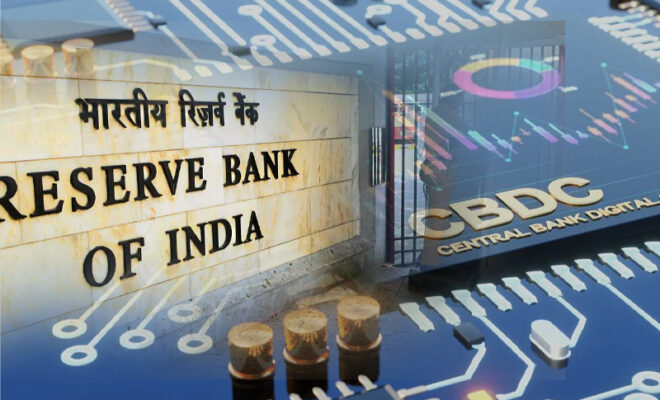RBI To Launch India’s First Pilot For Retail Digital Currency Today

The Reserve Bank of India will launch India’s first pilot for the retail Digital Currency (e-rupee / e₹) on 1st December, 2022. The initial test was done between banks & govt securities.
On December 1st, India’s central bank, RBI, will introduce the nation’s first test of a retail e-rupee (Tuesday).
The Reserve Bank of India’s (RBI) version of the central bank digital currency (CBDC), known as the e-rupee, would be offered to a small user group initially and cover only a few areas.
Merchants and certain participating clients will be part of the group, according to the bank. It would be disseminated by means of middlemen, like banks.
There will be two phases to the pilot’s launch. Four banks, namely State Bank of India, ICICI Bank, Yes Bank, and IDC Initial Bank, will participate in the first phase across four cities.
Four additional banks will join in the second phase, including Bank of Baroda, Union Bank of India, HDFC Bank, and Kotak Mahindra Bank, in additional cities.
According to the RBI, the pilot’s scope may eventually be gradually expanded to encompass more banks, users, and locations.
According to Reuters, consumers will be able to conduct transactions with the e-rupee using their mobile devices or digital wallets from partner banks.
It would be distributed in the same denominations that coins and paper money are now distributed in.
Users would not receive any interest from this, though, and it could not be turned into other types of payment like regular bank deposits might.
Also Read: RBI To Introduce India’s Own Cryptocurrency ‘CBDC’ This Year
The pilot programme, according to the bank, “will assess the stability of the whole process of digital rupee generation, distribution, and retail utilization in real-time.”
The reserve bank will then evaluate further e-currency features and applications based on the findings of the pilot test.
The wholesale e-rupee pilot was previously started by the Indian central bank on November 1. In it, nine participant banks have been using the e-rupee to trade government assets for a month.



